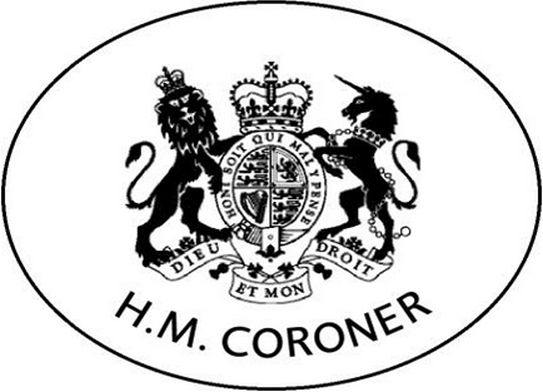News
Mystery surrounds tragic death

 AN INQUEST into the death of a teenage mother on Boxing Day has recorded a verdict of misadventure.
AN INQUEST into the death of a teenage mother on Boxing Day has recorded a verdict of misadventure.
Josephine Kelley, aged 19, of Newcastle Emlyn, was driving her VW Polo on the A484 on Boxing Day when she hit a wall, but the cause of the crash is unknown. There was no evidence that Kelley was under the influence of drugs or alcohol. She died three days later and her daughter sustained serious injuries. It was thought that her daughter was slipping out of her restraint which may have distracted Josie. Josie had been suffering from headaches and a post mortem found it was probable that the crash had ruptured an “underlying cerebral weakness”. The coroner for Ceredigion, Peter Brunton, described the death as “tragic”.
Community
Facebook ‘news’ site targeting Herald editor collapses after community backlash

Page disappears hours after offensive post sparks outrage across Pembrokeshire
A FACEBOOK page that presented itself as a local news outlet but repeatedly targeted The Pembrokeshire Herald and its editor has disappeared following a wave of public criticism from residents and charity workers.

The page, operating most recently under the name Clear Line News, published a lengthy post on Sunday (Feb 9) describing Pembrokeshire in highly offensive terms and mocking community groups, volunteers and local reporting.
Within hours, the post triggered widespread condemnation online.
By the end of the day, users reported the page had changed its name to “The Devil’s Feed” before becoming unavailable altogether.
Criticism arose after Marty Jones, PR manager for Sandy Bear Children’s Bereavement Charity, shared a screenshot of the post on his personal Facebook page and questioned its tone.
Dozens of residents replied, describing the language as “vile”, “nasty” and “beyond comprehension”.
Several said they had been blocked by the page after challenging it.
Others expressed particular anger at comments they said were directed towards a bereaved mother connected to a local fundraiser.
One commenter wrote: “How they can speak to a bereaved mother that way is beyond my comprehension.”
Name change and closure
As criticism mounted, users reported the page had been renamed before disappearing completely.
By Monday morning, it could no longer be accessed.
Earlier identity
The page’s history has also drawn scrutiny.
Before operating as Clear Line News, the account previously used the name “Dyfed-Powys Neighbourhood Watch”, presenting itself in a way that some residents believed suggested an official or community safety organisation.

A company using a similar name — GWARCHOD Y GYMDOGAETH DYFED-POWYS NEIGHBOURHOOD WATCH LIMITED — was incorporated on Nov 4, 2024, according to Companies House records.
The filing listed the director as Ajay Owen, recorded as “Lord Ajay Owen”, with a correspondence address in Llanfyrnach.
The company’s stated activities included public relations, communications and public order and safety functions.
Companies House records show the company was dissolved on Feb 18, 2025.
During the period when the page appeared to carry Neighbourhood Watch-style branding, it accumulated more than 1,000 followers, including engagement from public bodies such as Mid and West Wales Fire and Rescue Service.
After several rebrands, the page later emerged as Clear Line News in late 2025, adopting the look of a local news site.
Much of its content, however, focused on opinion pieces and attacks on local institutions and individuals.
Distancing statement
Following Sunday’s controversy, Mr Owen posted a statement saying he previously owned the page but no longer controlled it and had requested its removal.
Shortly afterwards, the account disappeared.
He told The Herald in December that he had sold the page for £10 within days of relaunching it under the new name. The purported new owner could not be contacted and no independent details confirming the transfer were provided.
Community response
While Pembrokeshire residents accept robust debate and scrutiny, many said they rejected what they saw as inflammatory or abusive social media content masquerading as journalism.
One resident wrote: “We should be grateful for where we live and try to make it better, not tear it down.”
Whether the page returns under another name remains unclear.
For now, it appears a site that set out to criticise the community ended up undone by that same community’s response.
Community
Nacro grant boosts neurodiverse support in Carmarthen

A £1,000 grant from Nacro is set to strengthen grassroots support for neurodivergent children, young people and adults across Carmarthenshire.
CANDO (Carmarthen Aberystwyth Neurodiverse Outreach Group) has secured the funding through the Connecting Carmarthenshire Preventative Service, enabling the volunteer-led organisation to expand its practical, person-centred work with local families.
Operating under the message “We see your future whatever the past”, CANDO supports people who often struggle to access the right help, feel heard, or find stability in everyday life. The new funding will increase capacity, provide resources for inclusive sessions, and improve access to early support for those who might otherwise slip through the net.

The group works closely with individuals and families to reduce barriers and build confidence — whether through education guidance, wellbeing support, advocacy, or help navigating local services. Leaders say the grant will allow them to respond more quickly to growing demand and keep sessions welcoming, accessible and consistent.
A CANDO spokesperson said: “This grant is amazing news for our community. Neurodivergent people can face extra pressures — from isolation and anxiety to difficulties being understood in education and services. This support will help us reach more people, provide practical help, and keep showing up for those who need someone on their side.”
Nacro’s wider mission mirrors that approach. The charity works across education, housing, justice, health and wellbeing, providing tailored support to help people build independence and move forward. Alongside frontline services, it also campaigns to remove systemic barriers and give disadvantaged people a stronger voice.
For CANDO, that bigger picture is felt locally. Families often face complicated pathways, long waits and fragmented services, and need clear guidance and community-based help that understands neurodiversity. By intervening early — before challenges escalate — the group believes it can improve mental health, education outcomes and overall wellbeing.
The £1,000 grant will fund additional outreach, materials and practical resources, helping more people feel safer, more confident and better equipped to move forward.
CANDO added: “We’re proud to work alongside Nacro’s vision of a society where everyone has the chance to succeed. This funding will do real good — right here in Carmarthen and beyond — and we’re grateful for the belief it shows in our community.”
Community
Students win King’s Trust award for transforming vandalised subway

A GROUP of students from Haverfordwest High School have been recognised on the national stage after winning a prestigious award at the Wales final of the The King’s Trust and TK Maxx Awards.
The students scooped the JD Foundation Community Impact Award during a ceremony held on Monday, January 19, at voco St Davids Cardiff, celebrating their efforts to transform a vandalised and neglected subway into a bright, welcoming mural for the community.
The project was delivered through the Achieve programme run locally by Pembrokeshire Youth Service, giving pupils a more hands-on, practical approach to learning outside the traditional classroom.
Reclaiming a neglected space
The group identified the graffiti-covered underpass, used daily on their walk to school, as somewhere that left a poor impression of the town.
Ffion, one of the students, said: “The subway was really unwelcoming and gave people a negative impression of the town. We wanted to reclaim the space and turn it into something positive.”
Working together, the pupils applied for funding, secured sponsorship from local businesses and organised school fundraising events. They also partnered with local artist Lloyd Griffiths to design and paint a colourful mural celebrating wellbeing, identity and pride in Haverfordwest.
The artwork even features their daily emotional “check-in” system – a tool they used throughout the programme to support each other’s mental health.
Building confidence and skills
Many of the young people involved had faced barriers in mainstream education, including social and emotional challenges or caring responsibilities at home. Several were at risk of leaving school with few qualifications.
Through the Achieve programme, they say they found a more supportive environment where they could develop confidence and practical skills.
Lateesha said: “We were really pushed outside of our comfort zone throughout the project, which helped us discover confidence in ourselves and just how much we’re capable of.”
The students developed teamwork, communication, fundraising and public speaking skills while delivering a lasting improvement to their neighbourhood.
Ffion added: “This project is our legacy. We’ve created something lasting that represents who we are and where we come from. It’s amazing what a cup of tea and a conversation can result in.”
Recognition on the national stage
Aaron Probert, JD Foundation Manager, presented the award on the night.
He said: “It is an honour to present this very special group of young people with the Community Impact Award. The way you have worked together to benefit your community is truly inspiring and the impact you have had is clear to see.”
The win now puts the Haverfordwest students in the running for a national King’s Trust Award, with finalists invited to a celebration event in May at London’s Royal Albert Hall.
The King’s Trust supports young people aged eleven to thirty with skills, training and opportunities, with three in four participants moving into work, education or training.
For these Pembrokeshire pupils, their award-winning mural is already proof of what can happen when young people are given the chance – and the support – to make a difference close to home.
-

 Health5 days ago
Health5 days agoHealth board targets rise in steroid and gym drug use across west Wales
-

 Crime6 days ago
Crime6 days agoSex offender jailed after living off grid in Pembrokeshire and refusing to register
-

 Crime5 days ago
Crime5 days agoTeacher injured and teenager arrested for attempted murder at Milford Haven School
-

 Business1 day ago
Business1 day agoComputer Solutions Wales under fire from customers
-

 Business4 days ago
Business4 days agoSix-figure negligence victory leaves retired builder trapped in divorce limbo
-

 Crime6 days ago
Crime6 days agoJohnston man remanded in custody over knife and assault charges
-

 News5 days ago
News5 days agoReform appoints Dan Thomas to lead party in Wales
-

 Crime6 days ago
Crime6 days agoProvisional licence holder admits drink-driving through town centre




























